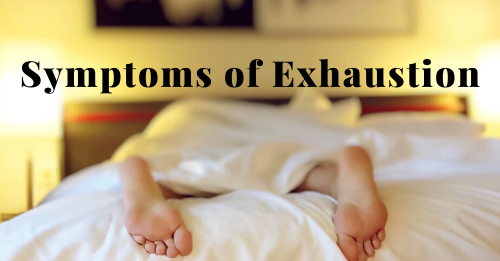Everyone gets tired from time to time, whether you stayed up too late watching a movie or missed your morning caffeine break and pay the price after lunch. But occasional tiredness differs from exhaustion. When you feel exhausted, it manifests in mental and physical ways. It can feel difficult to get going each morning, and you may feel overwhelmed and emotional.
Long-term stress often contributes to the development of mental exhaustion. Understanding the signs of exhaustion can help you identify the condition and seek treatment.
What Is Mental Exhaustion?
Mental exhaustion is a reflection of dealing with high tension levels for an extended period. This leads to elevated cortisol levels, too, that can start disrupting other systems of your body, such as digestion and immune function. Mental exhaustion can manifest as physical exhaustion, making it hard to carry out daily tasks.
Many people equate mental exhaustion with burnout. That term generally relates to work. A range of different things can cause mental exhaustion, including work, losing a loved one, caregiving for an older relative or dealing with the financial stress of losing your job.
Mental Exhaustion Symptoms
Are you suffering from mental exhaustion? The condition may present both physical and mental symptoms. Mental signs may include:
- Depression and anxiety
- Apathy or detachment
- Flagging motivation
- Trouble concentrating
- Lack of productivity
The physical signs of mental exhaustion include:
- Fluctuations in weight
- Achiness
- Greater susceptibility to colds and other illnesses
- Headaches
You may also notice behavioral signs of mental exhaustion. You may exhibit abnormal actions, such as isolating yourself socially or not showing up for work.
Tips for Avoiding Mental Exhaustion in Recovery
While in your recovery journey, you can take precautions to avoid mental exhaustion while you work on getting better. Some proven ways to prevent mental exhaustion during Recovery include:
- Exercising: While you can struggle with motivation to move when you have mental exhaustion, moderate physical exertion can help you control your stress levels.
- Trying relaxation exercises: Engaging in proven relaxation techniques can lower stress and tension levels long-term. Try different approaches to see what you enjoy. Options include biofeedback, yoga, massage and deep breathing.
- Using a gratitude journal: Recording what you feel grateful for each day can keep you grounded when you feel overwhelmed. Negative feelings can seem prevalent when you suffer from mental exhaustion, and writing down what you are grateful for squeezes those thoughts out.
- Getting more sleep: Sleeping helps restore us mentally and physically. Getting more sleep will keep you calmer under emotional circumstances. It also gives your body the healing time it needs after a challenging day.
When you are in Recovery, you may experience a range of emotions. Remaining watchful for symptoms of exhaustion can help you continue getting better. To learn more, contact us or schedule an appointment.

